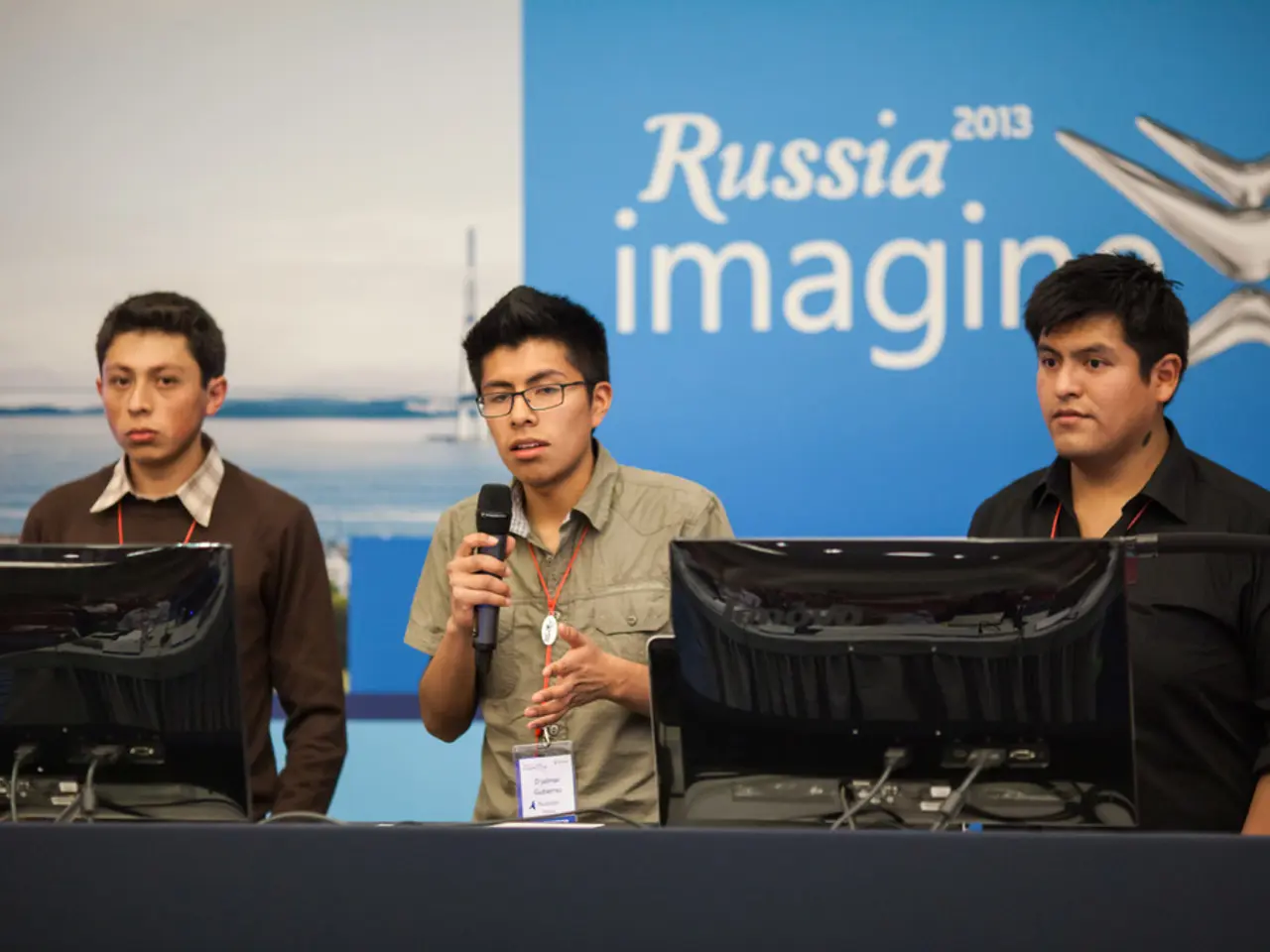Chancellor Friedrich Merz attends CISPA events
CISPA Helmholtz Center for Information Security: Pioneering Digital Sovereignty in Germany
The CISPA Helmholtz Center for Information Security, situated in Saarland, is a national large-scale research institution that plays a pivotal role in safeguarding Germany's digital sovereignty. Recognized globally as a talent pipeline for the next generation of cybersecurity experts and scientific leaders, CISPA focuses on cybersecurity, data protection, and trustworthy artificial intelligence (AI) [2][3][4][5].
CISPA's research advances cybersecurity by developing foundational technologies and standards that protect digital infrastructure and data from emerging threats. This work helps maintain control over Germany’s and Europe’s critical digital assets [2][5]. In the realm of data protection, CISPA contributes to secure and privacy-preserving solutions, such as owner-centric identity management and robust data handling frameworks, which help comply with stringent regulations like the EU Data Protection Act and Cyber Resilience Act [1].
Regarding trustworthy artificial intelligence, CISPA researches AI systems that are transparent, secure, and compliant with legal frameworks. This enables AI innovations to be integrated safely into industrial and societal applications, fostering digital sovereignty by ensuring these technologies are reliably controlled and auditable [1][2][3].
The federal and state governments are investing strategically and forward-thinking in CISPA's research. To support its growth, the state government is creating space for CISPA with up to 350 million euros for a new building [6]. Saarland's Minister President Anke Rehlinger stated that digital sovereignty and innovations are a foundation for the economic future and national security [7].
CISPA's CEO and founding director, Prof. Dr. Dr. h. c. Michael Backes, emphasized the importance of translating excellent research into excellence-driven innovations for Germany's digital sovereignty. He highlighted the centre's work on new AI-based methods for detecting deepfakes to expose manipulations and disinformation early on [1].
During a recent visit, Federal Chancellor Friedrich Merz praised the research at CISPA as a driving force for structural change in Saarland and Germany. A live demonstration of a monitoring system for unmanned aerial vehicles was showcased, enabling safe and reliable use of drones in critical applications. An early warning system against cyberattacks was also demonstrated, analyzing global attack activity and strengthening resilience against threats such as Distributed-Denial-of-Service attacks [8].
CISPA stands for digital innovation and excellent research in Saarland, attracting talent from around the world and becoming a leading global research center in cybersecurity and trustworthy AI [9]. The centre's work is crucial in ensuring Germany maintains autonomy over its data, networks, and AI capabilities, thereby securing its position in Europe’s digital landscape [2][3][4][5].
- At the CISPA Helmholtz Center for Information Security, the focus on cybersecurity, data protection, and trustworthy artificial intelligence is instrumental in pioneering digital sovereignty in Germany, ensuring the country maintains control over its digital infrastructure and critical assets.
- Recognized globally as a talent pipeline for the next generation of cybersecurity experts and scientific leaders, CISPA advances cybersecurity by developing foundational technologies and standards, contributing to secure and privacy-preserving solutions, and researching AI systems that are transparent, secure, and compliant with legal frameworks, thereby ensuring the safe integration of these technologies into industrial and societal applications.




